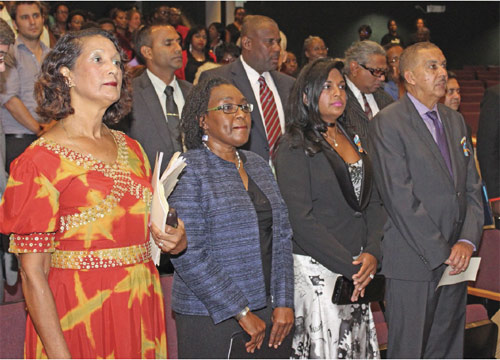
 There is widespread misconception that disabled people have no sexual attractions or urges, cannot perform sexually, are sexually irresponsible or are oversexed. This leads to a tendency to infantilize the disabled embodiment, denouncing sexual curiosity, and inadequate sexual health services. All of which indicate the deficit embedded in the social values towards disabled people and the false dependency notion that those with impaired bodies are incompetent, passive beings of whom things must be done for, and to. There is widespread misconception that disabled people have no sexual attractions or urges, cannot perform sexually, are sexually irresponsible or are oversexed. This leads to a tendency to infantilize the disabled embodiment, denouncing sexual curiosity, and inadequate sexual health services. All of which indicate the deficit embedded in the social values towards disabled people and the false dependency notion that those with impaired bodies are incompetent, passive beings of whom things must be done for, and to.
Symptomatic of the way that the rights to full citizenship are denied for disabled people, is the widespread prevalence of sexual oppression and exploitation with disabled women being assaulted, raped and abused twice as much as non-disabled women, and the more disabled the woman the greater her risk of being assaulted (Cusitar 1994, Simpson & Best 1991, Sobsey 1998). Sexuality is the second most important human drive after survival (Owens De Than 2015) yet so many are afraid to speak openly about it. But as the incidents of sexual and intimate abuse are so prevalent isn’t it time for frank discussions and risk reduction actions on this silent taboo?
Below is just a snapshot of what some disabled people have experienced:
Joyce a 21 year old with severe physical impairments was plied with alcohol and raped by a neighbour. The police officers refused to take further action because according to them “she can’t understand what happen to she, she retarded.” The only villager to chastise the perpetrator was Simon the parent of a disabled son.
Four siblings who had been raped were taken into a home for displaced youngsters. The matron found the 13 year old masturbating and relayed that she “beat the nastiness out of him and send him to bed without food as punishment.”
Carol’s family take her to weekly prayers. The Pastor squeezes her breasts and genital area because he believes she has a sex demon.
So who are the abusers? Perpetrators are people we know and trust, they live in and amongst us, are the people we work and socialise with – according to the Out of the Shadows 2011 Report, 97% to 99% of victims know their perpetrators.
The consequences of sexual exploitation range from unwanted pregnancies, to emotional distress leading to misuse of drink or drugs, destructive behaviours and suicide. It carries a degree of shame and guilt where some victims believe that they may have enjoyed the experience thus creating mistrust and in some instances destroys families. As a result, it is clear that more needs to be done to safeguard, protect, educate and support disabled people.
But try as we might, resisting the conversations only increases the vulnerability of our disabled population. Although Trinidad and Tobago is intending to ratify the UNCRDP shortly there needs to be widespread awareness raising in all sectors and robust sex education for the entire population that addresses gender stereotypes, cultural sexualisation leading to a cultural change that develops and promotes positive healthy sexual behaviours.
One perpetrator said he took advantage of the victim’s lack of mobility demonstrating that the sexual exploitation is also about vulnerability and opportunity. These can be done hand in hand with a number of risk reduction measures while simultaneously addressing the social ills that are harbouring the perpetrators.
Disability sexuality should be a specific theme within overall sex education, disability strategies, and crime and violence prevention processes together as part of a multi-partnership approach to the social and structural barriers that prevent disabled people from accessing services. There needs to be investment in accessible services that responds to the needs of disabled people, that includes quality sexual health care in accessible formats – easy to read, simple English, large print, electronic text, braille – and the needs of disabled people ought to be catered for in HIV/AIDS systems. There should also be independent scrutiny of social care institutional settings and robust reporting frameworks that ensure justice will be exercised and hefty sanctions imposed.
On a more individual level here are a few tips:
- Be mindful of one’s own sexual behaviours. A group of adult women were seen gyrating on a young teenager while others laughed and joked about it.
- Look, listen and take action.
Encourage consent and feelings of discomfort conversations about the body and touch, remembering the mouth is also an orifice for sexual abuse.
Do not compromise freedom and sexual autonomy but encourage safe, healthy consensual relationships and allow opportunities to share experiences.
This is a modified version of a paper presented by Dr Yansie Rolston at a conference hosted by The UWI Network and Outreach for Disability Education and Sensitization (NODES) and the Disability Studies Unit (DSU), UWI, St Augustine on April 23 and 24, 2015. The conference theme was “Towards Social Integration: Rights, Roles, Recognition of Persons with Disabilities.” |





